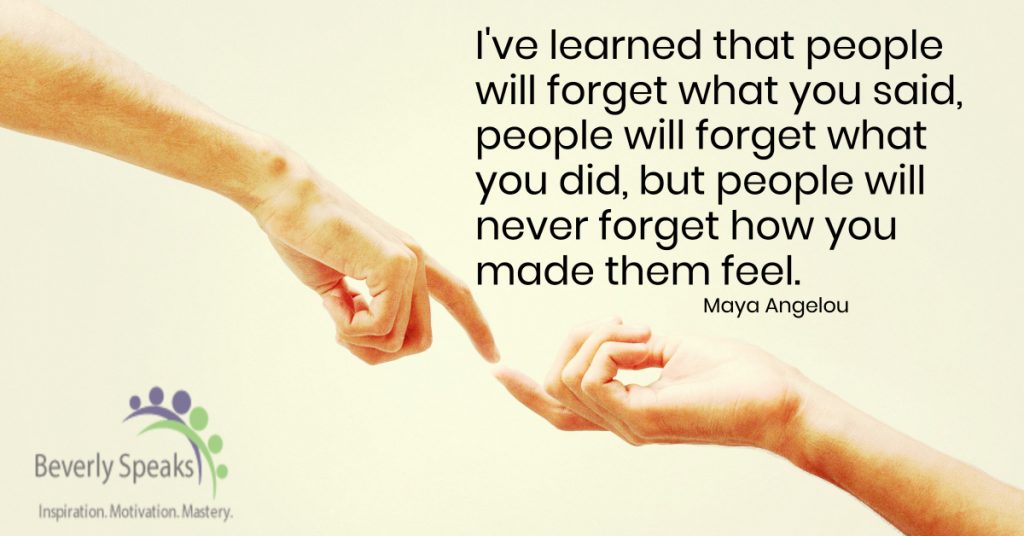The way you use your voice can either increase your influence
or cause others to shut you out.
Have you ever watched a conversation go downhill because of the disrespect communicated non-verbally? We’ve all experienced the reality of, “it’s not what you said, it’s how you said it”.
Some people think they can be heard if they simply talk louder. Just because you raise your voice doesn’t mean you will be understood more clearly. Especially if you’re not even speaking the same language.
Part of the challenge of being heard is a result of the 3,000 or so marketing messages we are exposed to in a typical day. The mental noise this creates means we all filter out much of what we see and hear. The brain has a mechanism called the reticular activating system – a fairly small part of your brain with a very important role. It’s the gatekeeper of the information that is let into the conscious mind. Interestingly enough, one thing that almost always gets through is the sound of your own name. That makes a strong case for calling people by their names.
Your ability to reach the group of people you are called to serve is essential. So how do you make yourself heard? Maya Angelou was onto the truth when she stated, “I’ve learned that people will forget what you said, people will forget what you did, but people will never forget how you made them feel.”

Neuro-linguistic research provides some insight into how we connect in conversation. Research indicates we imitate speech patterns of others as part of the inbuilt urge of the brain to empathize and form connection. This is called matching and mirroring. I remember being called out by my sister when we were travelling in Italy. She teased me because I was speaking English with an Italian accent. I was unconscious of this but we laughed about it. This whole accent phenomenon can be especially noticeable when you return to your birthplace. Perhaps you’ve dropped some of the vocal patterns of your hometown but when surrounded by those sounds – BAM – they’re right back in your mouth again. Psychologists call this the chameleon effect.
Sometimes I can tell who my husband is talking to on the phone by the way his speech patterns change to match his friend’s voice.
Whenever you want to communicate your ideas effectively, it’s wise to slow down and listen. Pay attention to how those you want to reach are speaking. Yelling never works unless you’re an athletic coach. Spreading ideas with thoughtful consideration of the communication styles of others facilitates meaningful conversation.
Your tone of voice can open hearts or close doors. Remember, it’s not necessarily what you say, it’s how you say it.
